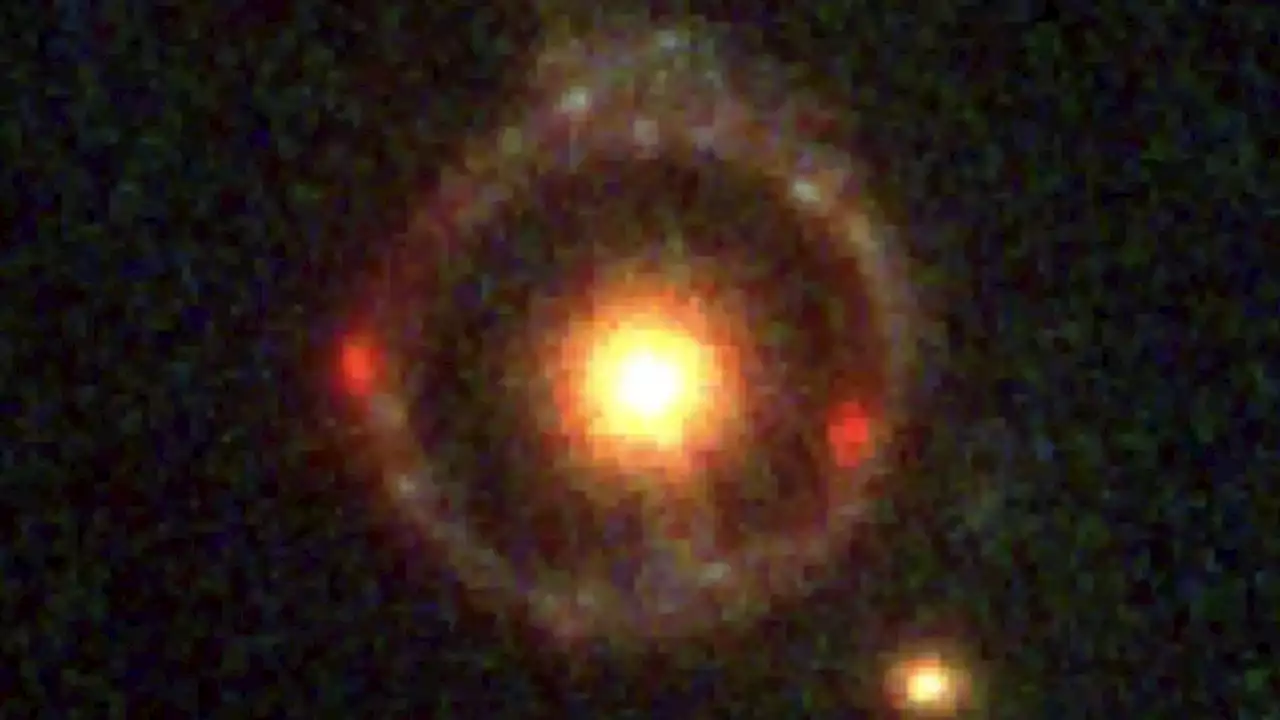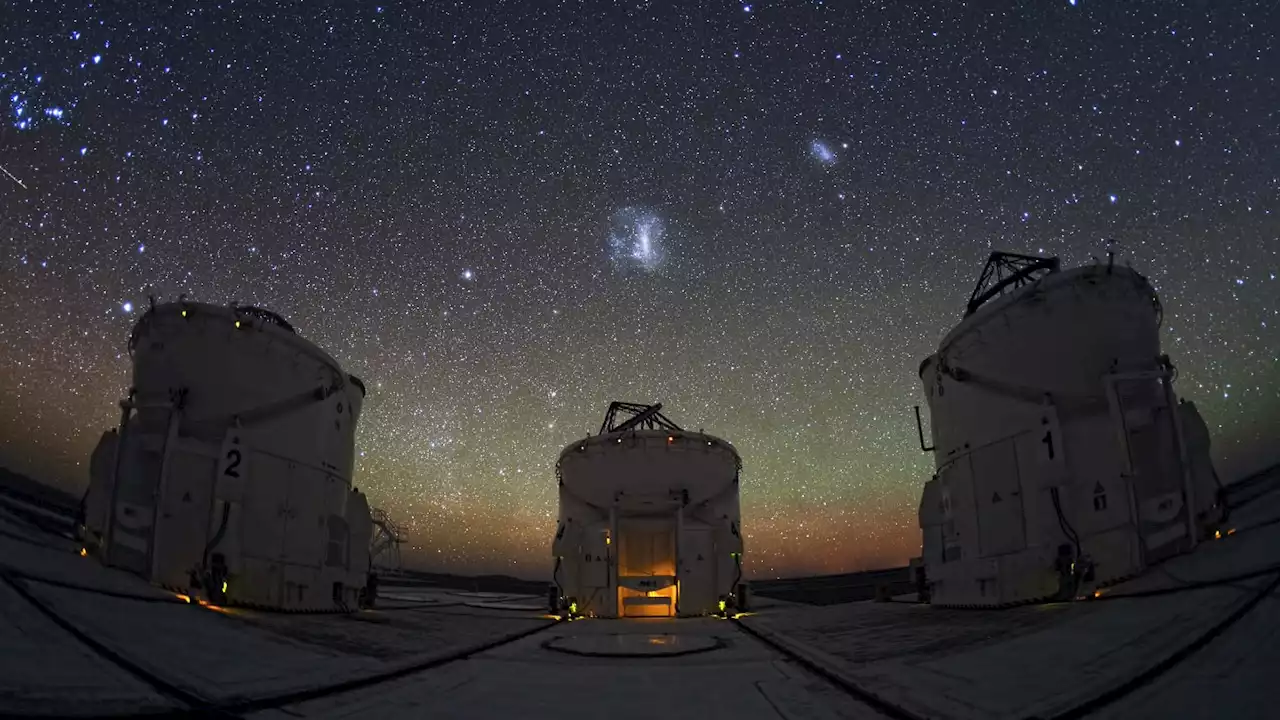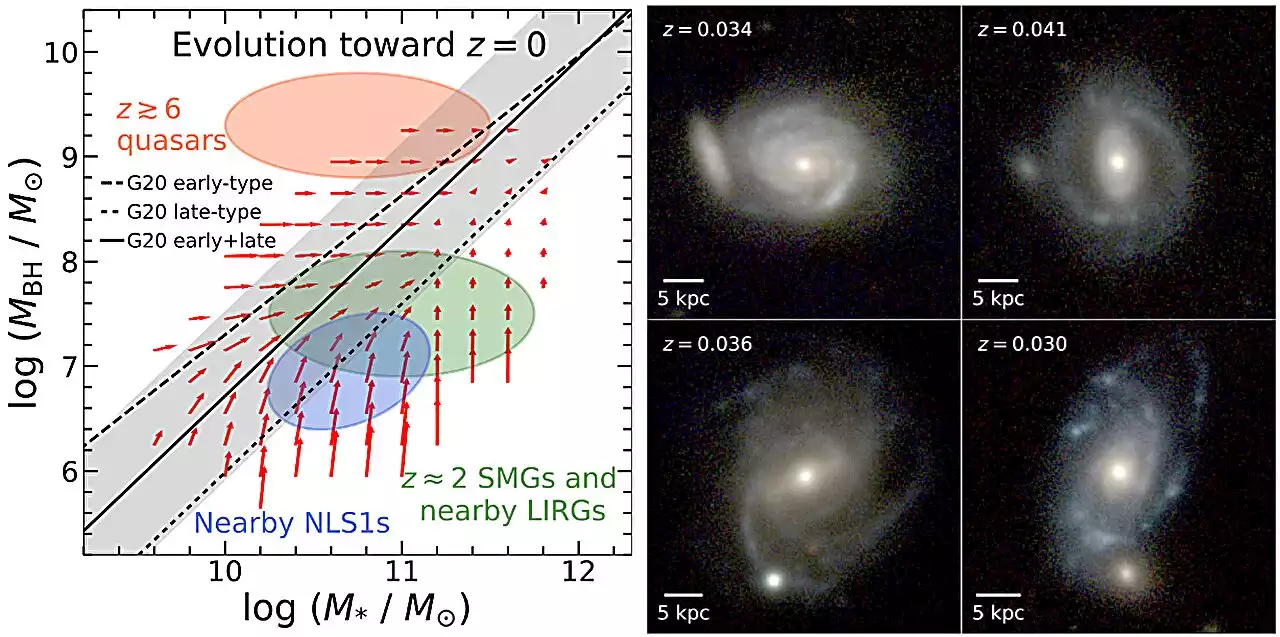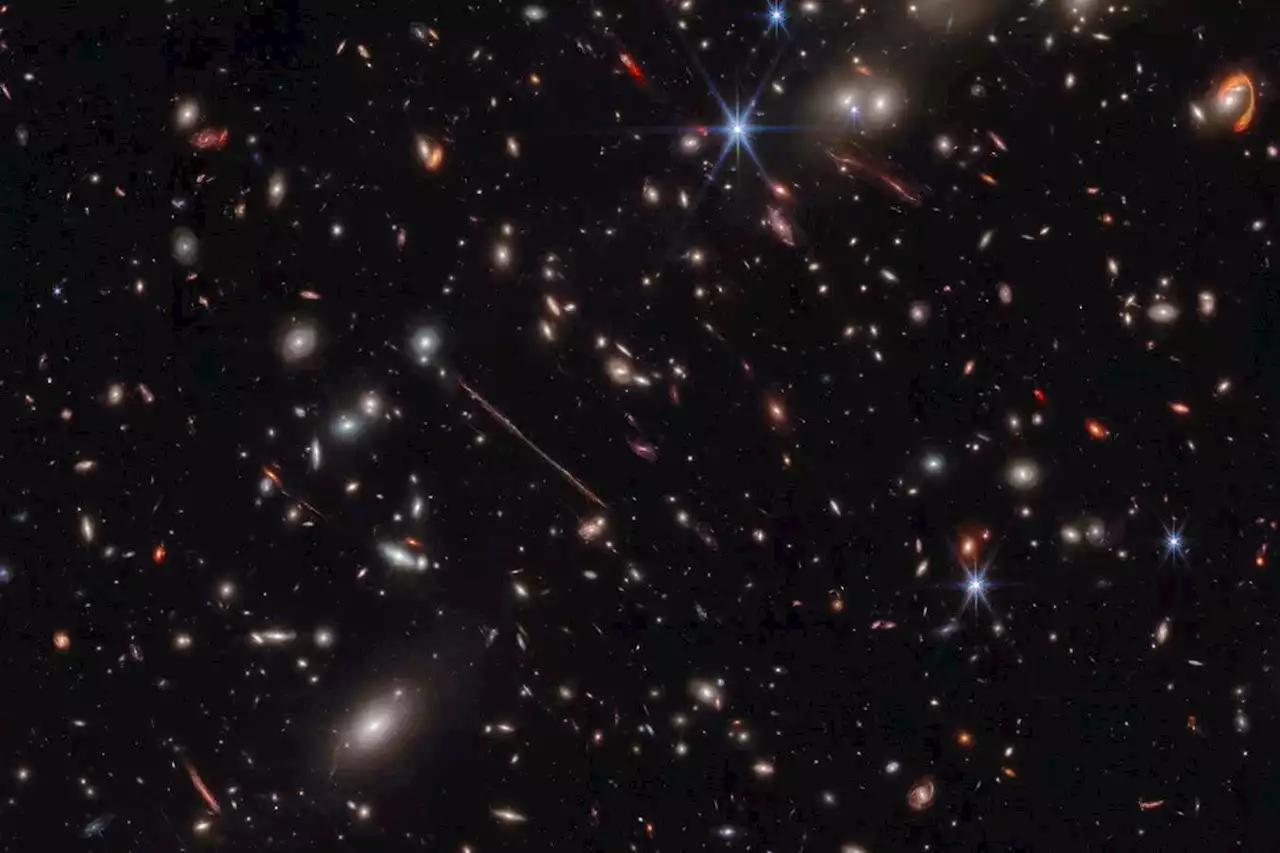Astronomers using the James Webb Space Telescope have found that the most distant galaxies are being “watered down” with pristine gas from their surroundings far more than nearby ones
without metals in it. They’re most likely born as we’d expect, with relatively low metal abundances but not abnormally low, and then they gobble up gas from the surrounding intergalactic material.
This means that these galaxies are not as independent of their surroundings as the ones we see in the nearby universe. “If we are to understand galaxy evolution at the earliest epochs, we can no longer treat them as individual ‘ecosystems’,” says Heintz. “We have to take into account their intimate connection to the surrounding intergalactic or cirgumgalactic gas.”Voyage across the galaxy and beyond with our space newsletter every month.
Danmark Seneste Nyt, Danmark Overskrifter
Similar News:Du kan også læse nyheder, der ligner denne, som vi har indsamlet fra andre nyhedskilder.
 DC Studios' James Gunn Imagines More DCU News in Not-Too-Distant FutureJames Gunn has promised that DC Studios updates are coming soon(ish) now that the WGA Strike has [...]
DC Studios' James Gunn Imagines More DCU News in Not-Too-Distant FutureJames Gunn has promised that DC Studios updates are coming soon(ish) now that the WGA Strike has [...]
Læs mere »
 James Webb spots thousands of Milky Way-like galaxies in early universe that shouldn’t existThe James Webb Space Telescope has now observed thousands of Milky Way-like galaxies in the early universe that shouldn't exist.
James Webb spots thousands of Milky Way-like galaxies in early universe that shouldn’t existThe James Webb Space Telescope has now observed thousands of Milky Way-like galaxies in the early universe that shouldn't exist.
Læs mere »
 James Webb Space Telescope reveals ancient galaxies were more structured than scientists thoughtSharmila is a Seattle-based science journalist. She found her love for astronomy in Carl Sagan's The Pale Blue Dot and has been hooked ever since. She holds an MA in Journalism from Northeastern University and has been a contributing writer for Astronomy Magazine since 2017. Follow her on Twitter at skuthunur.
James Webb Space Telescope reveals ancient galaxies were more structured than scientists thoughtSharmila is a Seattle-based science journalist. She found her love for astronomy in Carl Sagan's The Pale Blue Dot and has been hooked ever since. She holds an MA in Journalism from Northeastern University and has been a contributing writer for Astronomy Magazine since 2017. Follow her on Twitter at skuthunur.
Læs mere »
 Stunningly perfect 'Einstein ring' snapped by James Webb telescope is most distant gravitationally lensed object ever seenThe James Webb Space Telescope has taken a stunning image of a perfectly formed Einstein ring, which is also the most distant gravitationally lensed object ever detected.
Stunningly perfect 'Einstein ring' snapped by James Webb telescope is most distant gravitationally lensed object ever seenThe James Webb Space Telescope has taken a stunning image of a perfectly formed Einstein ring, which is also the most distant gravitationally lensed object ever detected.
Læs mere »
 Astronomers call for renaming the Magellanic CloudsExplorer Ferdinand Magellan is not a fitting namesake for the pair of satellite galaxies of the Milky Way, a group of scientists argues.
Astronomers call for renaming the Magellanic CloudsExplorer Ferdinand Magellan is not a fitting namesake for the pair of satellite galaxies of the Milky Way, a group of scientists argues.
Læs mere »
 Astronomers shed light on evolutionary paths of supermassive black holes and their host galaxiesA new paper entitled 'Evolutionary Paths of Active Galactic Nuclei and Their Host Galaxies,' published on August 17, 2023, in Nature Astronomy, provides critical new insights on the co-evolution of supermassive black holes and their host galaxies.
Astronomers shed light on evolutionary paths of supermassive black holes and their host galaxiesA new paper entitled 'Evolutionary Paths of Active Galactic Nuclei and Their Host Galaxies,' published on August 17, 2023, in Nature Astronomy, provides critical new insights on the co-evolution of supermassive black holes and their host galaxies.
Læs mere »
